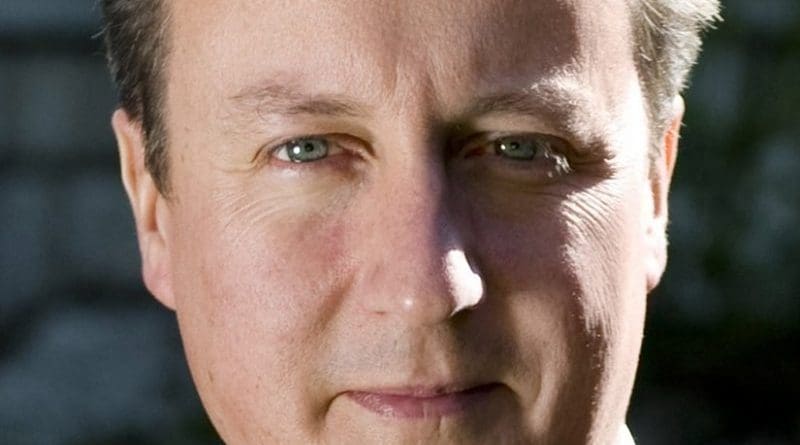Cameron Tight-Lipped On Possible ‘Emergency Brake’ In Brexit Negotiations
By EurActiv
By Matthew Tempest and Henriette Jacobsen
(EurActiv) — British Prime Minister David Cameron kept silent Friday on the possibility of an “emergency brake” on EU migration to the UK, ahead of a meeting with the European Commission’s president in Brussels.
Cameron met Jean-Claude Juncker for a “working lunch” of lobster soup and chocolate mousse behind closed doors, before also seeing European Parliament President Martin Schulz in the afternoon.
Both last-minute meetings ahead of the crunch February summit on the UK’s exit referendum negotiations were held in close secrecy, with Cameron arriving without saying a word to the media, and no press conferences scheduled. A trip to Sweden and Denmark had been cancelled to accommodate today’s Brussels meetings.
However, one model believed to be on the table could be the Swiss example. Despite being outside the EU, but within the Schengen free-travel zone, the Swiss have been negotiating with Brussels for the past two years in a bid to limit EU migration to the country, after voting in February 2014 to slash numbers.
With three of Britain’s four negotiating “baskets” seemingly close to some sort of deal, the sticking point remains London’s attempts to limit in-work benefits for EU migrants, to reduce the ‘pull factor’ for EU migrants.
Failing a four year moratorium on such benefits, one plan is to apply for an “emergency brake” on EU numbers – although who would decide, and for how long, an “emergency” existed, is unclear.
An EU source told EurActiv, “The emergency break is an idea that has been floated. It’s a proposal that has been put on the table between those who negotiate. Those who are at the table will discuss it.”
On arriving at the Berlyamont HQ of the EU Commission, Cameron ignored a shouted question of “who pulls the brake?” from journalists.
And now for Tusk, in London
Cameron will now meet Donald Tusk, EU Council President, on Sunday evening in London for further talks, ahead of Tusk tabelling formal written proposals for the 18 February summit on a ‘Brexit’ in Brussels.
That meeting is also, EurActiv believes, taking place without any public briefing, as negotations enter what Downing Street hopes is the final stretch ahead of a possible June referendum.
Before setting off for Brussels, Cameron told the BBC, “I’m encouraged that ideas are coming forward that have some force but we’re not there yet. They are not yet strong enough.”
“It’s encouraging that people like the European Commission are coming forward with new ideas but there’s still a long way to go before we see something that we can actually agree on.
“There’s going to be a lot of hard negotiation, a lot of hard talking but it is encouraging that what I was previously told was impossible is now looking like it is possible,” he said.
“I won’t agree to something unless it has the force and the weight that we need to solve the problems that we have. I’m prepared to be patient,” he added.
The talks with Juncker are set to focus on an emergency “migration brake” that would meet Cameron’s controversial key demand – a four-year wait before workers from other European Union countries in Britain can claim welfare payments.
However, asked by EurActiv who would decide whether an ‘emergency’ existed in the UK, and how long it might last, the EU Commission stonewalled.
Spokesman Margaritas Schinas told EurActiv, “I said moments ago that I was not going to go into the specifics of the aspects of the reported news of the possible, or likely, content, of an agreement which is yet to emerge. Now, if you would like us to take you through the legal science of what is available, my colleagues will certainly be happy to point you to the sources.”
In fact, no such legal briefing materialised.
Cameron has set out four key areas for a deal: EU worker benefits, safeguards against more political integration in the EU, protection of countries that do not use the euro currency — a key issue for the City of London financial district – and the boosting of economic competitiveness.

